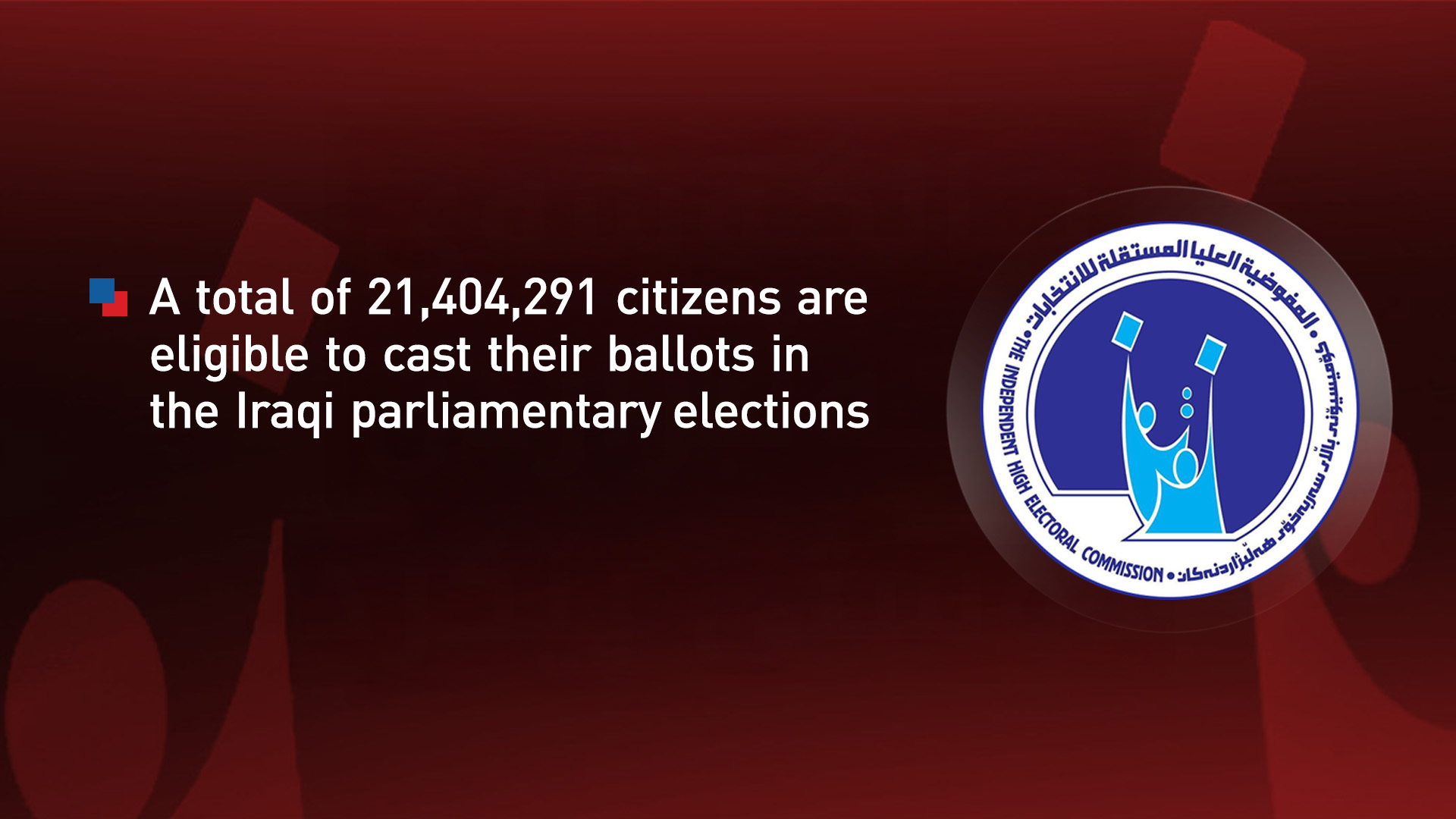Iraq Kicks Off Campaign Season for Sixth Parliamentary Elections
According to IHEC spokesperson Jumana Ghalai, the campaign period will last until Saturday morning, just before the Nov. 11 vote.

ERBIL (Kurdistan24) – The Independent High Electoral Commission (IHEC) announced on Thursday that campaigning for Iraq’s parliamentary elections will officially begin at midnight on Friday, October 3.
According to IHEC spokesperson Jumana Ghalai, the campaign period will last until Saturday morning, just before the Nov. 11 vote. This marks the beginning of political activity for the country’s sixth parliamentary term, a process that will determine the composition of Iraq’s next federal government.
A total of 21,404,291 citizens are eligible to cast their ballots in the elections. Of these, 20,063,773 will participate in the general vote, while 1,313,980 citizens are registered for the special voting process, which includes members of the armed forces, security services, and internally displaced persons.
The elections will see 7,768 candidates—5,520 men and 2,248 women—competing across the country. They represent 38 political parties, 31 coalitions, and 75 independent lists, reflecting Iraq’s diverse and competitive political landscape.
On Thursday, Kurdistan Region President Nechirvan Barzani issued a statement ahead of the launch of the Iraqi parliamentary elections campaign, urging political parties to conduct their activities respectfully and constructively.
Read More: Kurdistan Region President Urges Civilized and Peaceful Iraqi Parliamentary Elections Campaign
The parliamentary elections, first held in 2005 following the fall of Saddam Hussein’s regime, are a cornerstone of Iraq’s democratic system. They are held every four years to elect the 329 members of the Council of Representatives, which holds significant authority in shaping the government and passing legislation.
The upcoming vote will be held under a new electoral system introduced after the 2018 elections and nationwide protests from 2019 to 2021, shifting from proportional representation to a single non-transferable vote system in 83 multi-member constituencies.
The Nov. 11 vote will take place amid heightened regional tensions and ongoing domestic challenges, including economic reforms, service provision, and relations between Baghdad and Erbil. Political observers note that the outcome of the elections will play a key role in Iraq’s stability and its path forward in addressing both internal and external pressures.